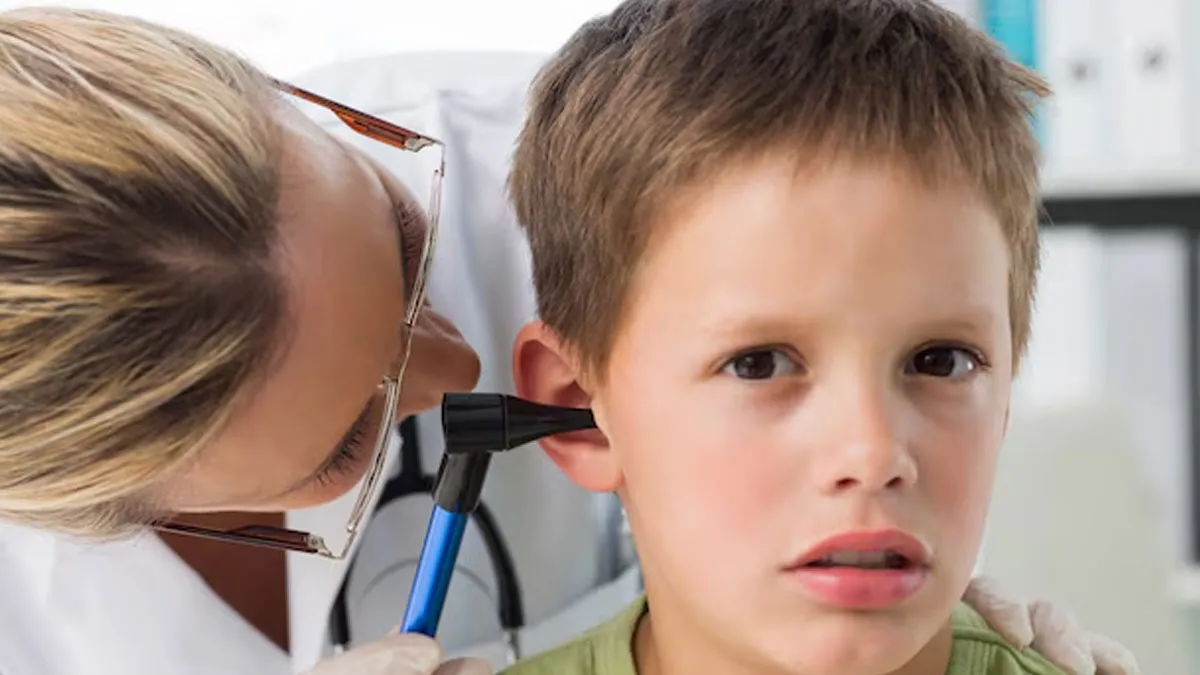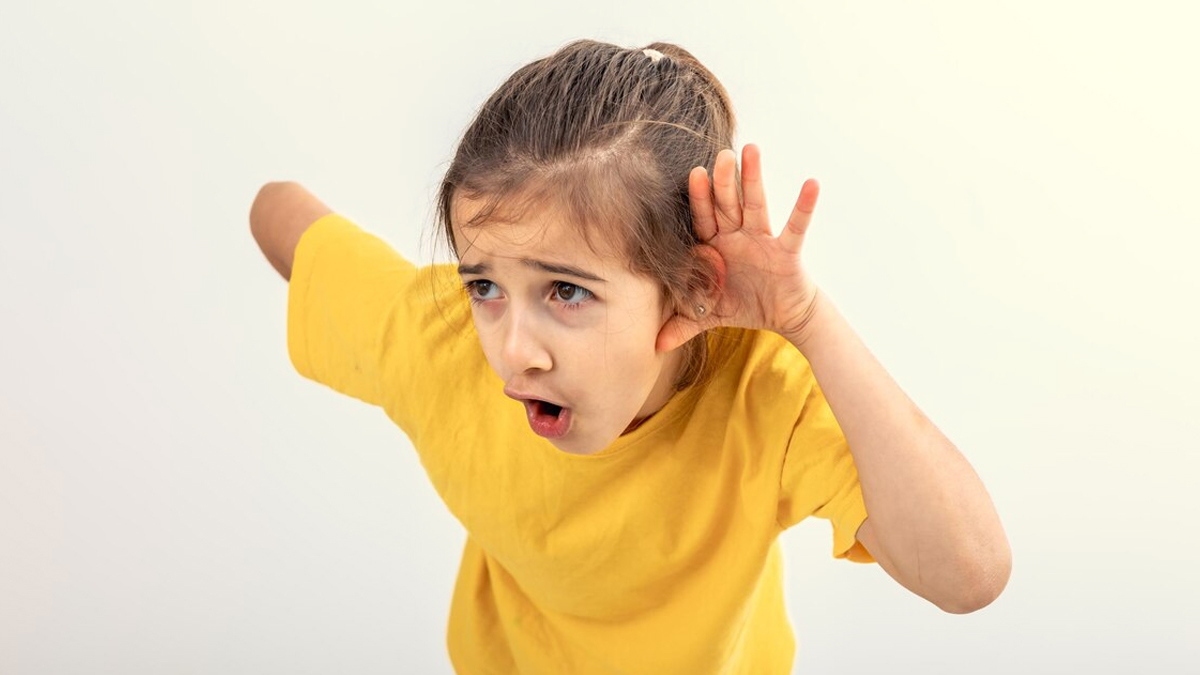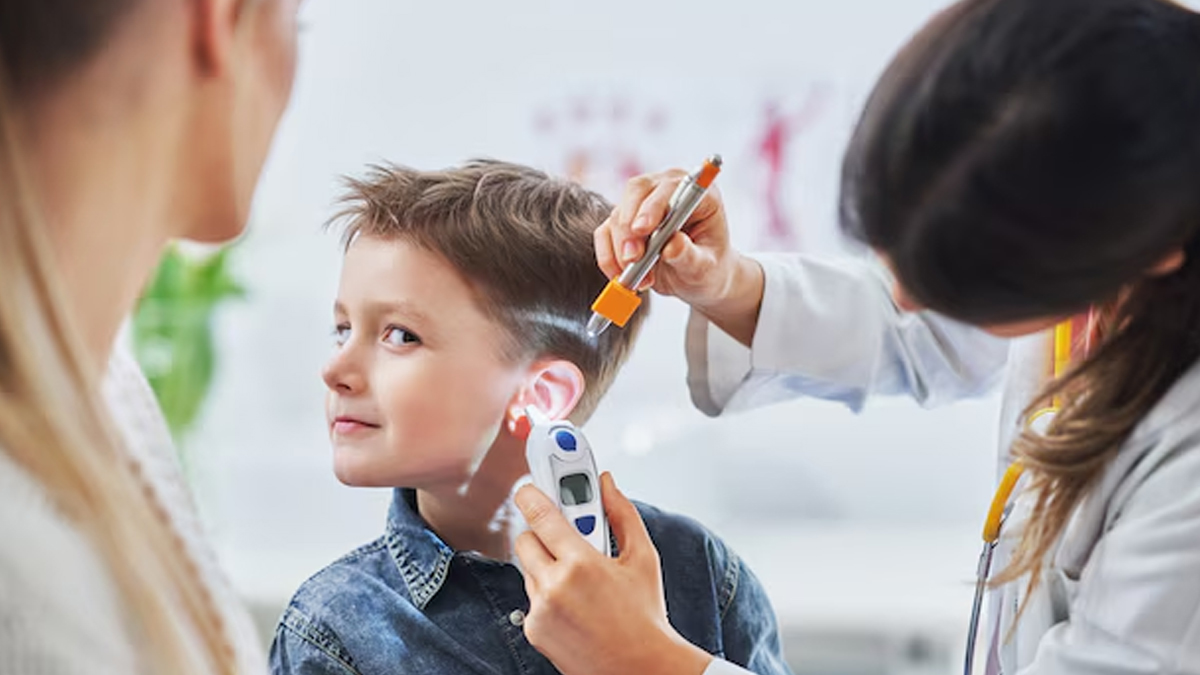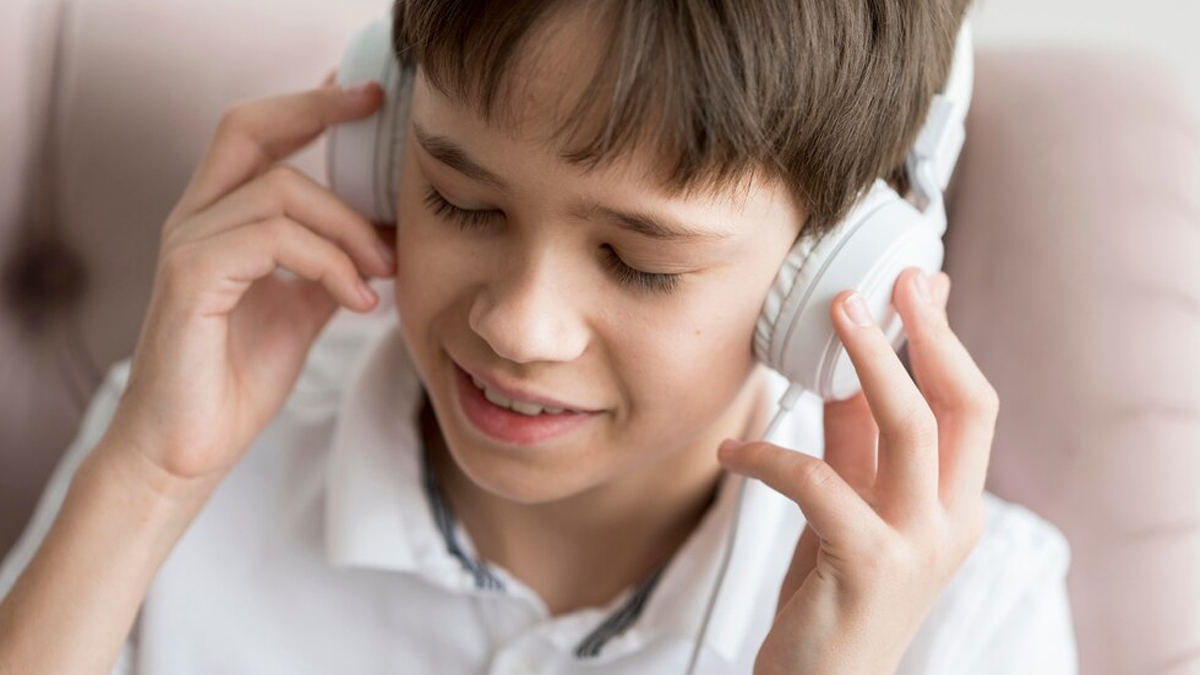
Hearing plays an integral role in a child’s speech and language development. It ensures proper communication and helps kids learn language, read, write, and build social skills. Therefore, any degree of hearing impairment, if left undiagnosed, can impact children's social interactions as well as academic performance. While identifying hearing loss in adults is comparatively easier than in children, there are strategies that can help diagnose it sooner in kids and take proactive steps. Read to know everything about the same.
Table of Content:-
Also Read: Types Of Hearing Loss And Why You Should Care
Early Signs Of Hearing Loss In Children

In an interaction with the OnlyMyHealth team, Dr Deepika Rustogi, Senior Consultant—Paediatrics and Neonatology, Yashoda Super Speciality Hospital, Kaushambi, says, "Early signs of hearing loss in babies and young children can vary depending on the severity and type of hearing impairment." Parents should watch for key hearing and speech milestones and watch out for any indication of hearing impairment, which includes:
Newborns (0–3 months): Not responding to loud noises, failing to react to voices, or not calming down when hearing a familiar sound.
4–6 months: Lack of reaction to their name, not turning towards sounds, or disinterest in musical toys.
7–12 months: Limited babbling, not imitating simple sounds, or poor vocalisation.
After 1 year: Delayed speech development, difficulty following verbal instructions, or over-reliance on gestures.
If a child exhibits any of these signs, it is recommended to consult a paediatric audiologist for further evaluation.
How To Diagnose Hearing Loss In Infants

One of the most effective ways to detect hearing loss early is through universal neonatal hearing screening, says Dr Rustogi. This test should ideally be conducted right after birth, ensuring that hearing impairments are identified before speech development begins. If hearing loss is not detected early, it often only becomes apparent when a child fails to speak, which can significantly delay intervention.
Hearing loss is diagnosed through specialised tests, including:
Newborn hearing screening: Otoacoustic Emissions (OAE) and Auditory Brainstem Response (ABR) tests assess hearing function in newborns.
Behavioural audiometry: Evaluates how infants and toddlers respond to different sound frequencies.
Tympanometry: Checks eardrum movement to detect fluid buildup or blockages.
If a child fails the screening, further diagnostic evaluations are performed to determine the type and severity of hearing loss.
Certain newborns are more at risk of developing hearing loss than others. These include:
- Preterm babies
- Babies with neonatal sickness requiring medical intervention
- Newborns with prolonged NICU admission
- Neonatal jaundice at dangerous levels that was not treated in time
- Infants exposed to neurotoxic medications during the neonatal period
- Children with genetic syndromes linked to hearing impairments
- Family history of hearing deficits
Also Read: How Does Excessive Screen Time Affect Toddlers' Speech Development?
Can Mild Hearing Loss Affect Speech Development In Kids?

According to Dr Rustogi, even mild hearing loss can significantly impact a child’s speech development and learning. “Children with mild hearing loss may struggle to hear soft speech sounds, making it difficult to learn new words, understand conversations in noisy environments, and develop proper pronunciation. Over time, this can lead to delayed language skills, difficulty in social interactions, and challenges in academic settings, particularly with reading and comprehension,” she shares, emphasising early intervention, including hearing aids and speech therapy.
Treatment Options For Hearing Loss
The treatment for hearing loss depends on its severity and cause. Common treatment options include:
- Hearing aids: Used for mild to moderate hearing loss to amplify sounds.
- Cochlear implants: Recommended for severe to profound hearing loss when hearing aids are insufficient.
- Medical treatment: For conductive hearing loss, antibiotics, ear tubes, or surgery may help.
- Speech and language therapy: Helps children develop communication skills.
- Assistive listening devices: FM systems and other technologies improve hearing in classrooms or social settings.
Takeaway
Hearing loss should not be ignored in children and should be detected and treated early. Parents play a key role in helping children with hearing loss develop language skills. Early speech therapy and special programs can make a big difference. Using gestures, sign language, and talking or reading regularly helps build vocabulary. Ensuring proper use of hearing aids or cochlear implants is also important. Working with experts like audiologists and speech therapists can also provide the right support. With early help and the right resources, children can learn to communicate well and thrive.
Also watch this video
How we keep this article up to date:
We work with experts and keep a close eye on the latest in health and wellness. Whenever there is a new research or helpful information, we update our articles with accurate and useful advice.
Current Version
